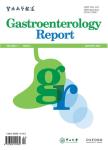Non-invasive digestion monitoring with an FDA-cleared wearable biosensor:further validation for use in tracking food ingestion
采用FDA认证的便携式生物传感器进行消化功能的无创监测:进一步证实其可用于追踪食物摄入情况作者机构:Karsh Division of Gastroenterology and HepatologyCedars-Sinai Medical CenterLos AngelesCAUSA Cedars-Sinai Center for Outcomes Research and Education(CS-CORE)Los AngelesCAUSA Division of Health Services ResearchCedars-Sinai Medical CenterLos AngelesCAUSA Department of Health Policy and ManagementUCLA Fielding School of Public HealthLos AngelesCAUSA Division of InformaticsCedars-Sinai Medical CenterLos AngelesCAUSA
出 版 物:《Gastroenterology Report》 (胃肠病学报道(英文))
年 卷 期:2021年第9卷第5期
页 面:475-477,I0003页
核心收录:
学科分类:1002[医学-临床医学] 080202[工学-机械电子工程] 08[工学] 100201[医学-内科学(含:心血管病、血液病、呼吸系病、消化系病、内分泌与代谢病、肾病、风湿病、传染病)] 0802[工学-机械工程] 10[医学]
摘 要:Introduction Obesity affects one-third of the US population and accounts for$200 billion/year in expenditures[1].Diet and exercise form the cornerstone of management,yet are often ineffective[2].Mobile health applications(mHealth apps)can augment traditional strategies;Gill and Panda[3]demonstrated that obese patients can modify their eating behavior and lose weight using an mHealth app to track food *** promising,these apps typically require active data input and currently lack passively collected,physiologic input to support sustained behavior change.



